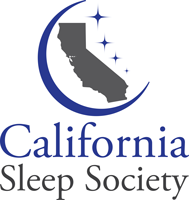By: William T. Hart, MD
Many products are being sold over the counter and are promoted to improve sleep.
Recently I have noticed peddling of misinformation and potentially ineffective therapies are common on the internet. One of these is selling mouth tape for sleep.
Amazon and Walmart are now selling adhesive products designed for “ mouth breathers,” promising “ instant snoring relief.” Dentists, orthodontists and ENT physicians have jumped onto this bandwagon. I could only find anecdotal reports this helps.
A common assertion is that nasal breathing is overall better for us. And a promotion of “exhalation of fat “ is a way to lose weight during sleep is hard to support.
There are books that promote this idea about nasal breathing and health benefits and extrapolating these concepts into breathing patterns during sleep.
While it is understood by pulmonary doctors that breathing through your nose and taping your mouth could have benefits in very specific groups of patients. For example as a way to prevent mouth leaks of air when using CPAP, this could help with compliance.
I am not aware of any medical study which demonstrates a benefit of taping the mouth closed during sleep for resolution of snoring or apneas.
Nasal breathing does provide air filtration, humidification of and warming of air . There is research showing mouth breathing is associated with snoring and Apneas, however, closure of the mouth per se does not equate to resolution of apneas or snoring. There are nose-breathing practices related to yogic and Ayurvedic practices that are consistent with positive physiologic effects in conscious awake persons. There may be benefits for nasal breathing while awake. Such breathing practices are useful to assist with sleep initiation. To be honest, I am not confident these types of practices are present and able to be continued when someone is unconscious asleep with the natural disconnection of mind and body.
Personally, I would be concerned about a theoretical risk of taping the mouth closed but not realizing a person has untreated obstructive sleep apnea, and lets say combined with nasal valve dysfunction – sinusitis, sinus deviation, nasal polyps. Effectively, such a closure of the mouth during sleep in this scenario may equate to closure of all airway passages contributing to asphyxia and resulting in nighttime awakenings.
A way to understand the relationship of mouth breathing during sleep is this article by Ruhle K.H, et al. in Respiration, Mouth Breathing in OSA prior to and during Nasal continuous positive airway pressure. (2008;76:40–45)
Conclusions: In OSAS patients, Mouth Breathing (MB) episodes often appear at the termination of an apnea/hypopnea episode. In many cases, MB episodes can be markedly reduced by nCPAP treatment. When patients on nCPAP complain of dry mouth, appropriate measurements should be performed to verify MB.
I would also point the reader to this study:
Effect of mouth taping at night on asthma control – a randomized single-blind crossover study (Sue Cooper, Janet Osborne, Tim Harrison, Anne Tattersfield) (https://doi.org/10.1016/j.rmed.2009.02.003).
When asked about acceptability of mouth taping, 36 of the 50 participants said that it was very or fairly acceptable to use, whilst 11 said it was very or fairly unacceptable. However, when asked whether they would continue to tape their mouth at night after the study, only 11 said yes and 29 said no. The most commonly reported problems or dislikes about mouth taping were that it was uncomfortable (12), caused sore lips (14), made breathing very difficult (10), felt unnatural (11), made sleeping worse (9), caused a feeling of suffocation (8), or was embarrassing (5). Some participants, however, felt that mouth taping improved sleep quality (11), reduced snoring (16), and left their mouth fresher on waking (13). Three participants thought mouth taping made their asthma worse, whilst 13 felt that their asthma had improved.
Where I have recommended use of paper tape is to help patients with severe oral leaks in my patients on a pap device.
A common report I have encountered in patients that tape their mouth is the development of a tape adhesive allergy over time and lip rash.
Checking with a sleep doctor first is probably a good idea before initiating mouth tape.
Finally, I leave the reader with this thought: why is packing tape better than regular tape? Answer: it is unclear.
It has been my pleasure and privilege to serve on the CSS Board of Directors for the last four years.

